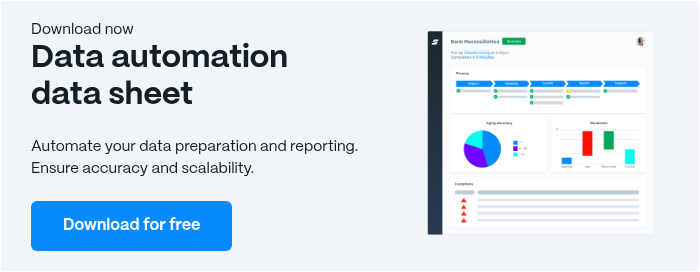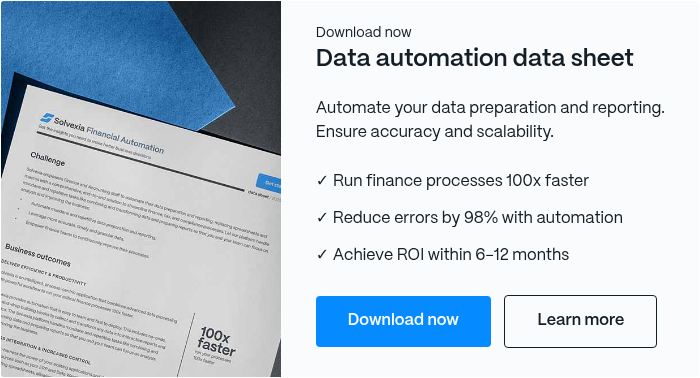Top 10 Accounting Issues in 2026 (and How to Solve Them)

The accounting profession is experiencing its most dramatic transformation in decades. The convergence of artificial intelligence, evolving ESG mandates, complex compliance requirements, and sophisticated cyber threats has created challenges that traditional accounting practices weren’t designed to handle.
Amid these changes, accounting teams are facing ongoing challenges as they navigate the persistent and emerging issues brought on by new technologies, regulations, and threats.
This comprehensive guide examines both persistent accounting challenges and emerging issues reshaping the profession in 2026. More importantly, it provides practical, actionable solutions that forward-thinking teams are using to turn these challenges into competitive advantages.
Coming Up
What are the Most Common Accounting Issues?
Accounting teams across industries face an unprecedented number of challenges in 2026, with complexity increasing at every level—from day-to-day operations to strategic planning.
A well-supported accounting team is essential for managing these challenges effectively and maintaining compliance in a rapidly changing environment. Understanding these core issues is the first step toward building more resilient financial processes and a more resilient team.
Financial Statement Errors
Financial statement errors remain a persistent problem, with SEC enforcement actions for reporting and audit violations rising more than 50% from 2021 to 2023. These errors range from simple calculation mistakes to complex revenue recognition issues that trigger regulatory scrutiny and can result in significant shareholder losses. Such errors can also lead to misstatements on the balance sheet, impacting asset classification, inventory management, and the accuracy of financial reporting.
Regulatory Non-Compliance
Regulatory non-compliance has become increasingly expensive, with average penalties reaching $2.5 million per incident for financial institutions. Failure to comply with accounting regulations can result in severe financial and reputational consequences for organizations. Beyond direct fines, non-compliance causes 15-25% revenue loss due to eroded client trust, making prevention far more cost-effective than remediation.
Fraud and Inadequate Controls
Fraud and inadequate controls continue to plague businesses, with 79% of organizations experiencing attempted or actual payments fraud in 2024. Business email compromise has emerged as the dominant threat, while traditional vulnerabilities persist without proper internal controls.
Use of Outdated Technology
Outdated technology creates bottlenecks throughout the accounting process, with 60% of financial services CTOs citing legacy systems as “too costly and inadequate” for modern needs. Continued reliance on Excel spreadsheets can further hinder efficiency and accuracy, as these tools are prone to errors and lack the automation features of dedicated accounting software.
Transitioning to modern accounting solutions helps organizations overcome these limitations and streamline their financial operations. These efficiency gaps contribute significantly to the time management challenges that plague accounting teams.
Lack of Skilled Professionals
The lack of skilled professionals compounds every other challenge and has reached crisis levels. An alarming 83% of financial leaders reported talent shortages in 2024, with 340,000 fewer accountants in the U.S. workforce compared to prior years. This talent shortage now ranks as the #1 concern for accounting professionals, ahead of regulatory changes and technology integration.
These challenges are deeply interconnected: talent gaps and legacy systems exacerbate error and fraud risks, while compliance costs compound operational strains, creating a cycle that demands strategic intervention rather than piecemeal solutions.
Emerging Accounting Issues in 2026
While traditional accounting challenges persist, 2026 has introduced a new layer of complexity that’s reshaping how finance teams operate. New technologies such as automation, artificial intelligence, and blockchain are driving this transformation, fundamentally changing accounting practices and demanding new skills. These emerging issues require proactive strategies rather than reactive solutions.
AI & Automation Disruption
The opportunity-implementation gap continues to widen. While 47% of firms plan AI adoption, many struggle to move beyond pilot programs. The promise of automated data entry, intelligent expense categorization, and predictive analytics is clear, but implementation requires significant upfront investment, staff training, and process redesign. Automating the process of recording transactions within centralized, cloud-based accounting platforms further enhances accuracy, efficiency, and compliance.
Organizations that delay adoption risk falling behind competitors who successfully leverage these tools for faster closes, better forecasting, and enhanced fraud detection.
Cybersecurity Risks in Finance
Finance teams handle the most sensitive data in any organization—from payroll information to bank account details—making them prime targets. Accountants play a crucial role in implementing cybersecurity measures and protecting financial data from cyber threats.
Phishing attacks specifically targeting accounting departments have become sophisticated, often impersonating vendors or executives to authorize fraudulent payments. Ransomware attacks can completely halt financial operations, while weak internal systems create vulnerabilities that external auditors increasingly scrutinize.
Sustainability & ESG Reporting Pressures
ESG reporting is moving from voluntary initiatives to mandatory requirements. Multiple reporting frameworks—from SASB to GRI to emerging SEC climate disclosure rules—create confusion about which standards to follow.
The challenge isn't just compliance; it's gathering consistent, auditable data across complex supply chains and operations. Many finance teams lack the systems and expertise to measure scope 3 emissions or track social impact metrics that stakeholders increasingly demand.
Global Regulatory Complexity
International business operations expand while regulatory frameworks diverge. The ongoing tension between IFRS and GAAP creates reporting challenges for multinational companies, while cross-border tax compliance becomes increasingly complex.
Transfer pricing documentation, country-by-country reporting, and varying digital tax requirements mean even mid-sized companies need international tax expertise that’s difficult to find and expensive to maintain. Such issues highlight the challenges of regulatory compliance and adhering to cross-border legal requirements, including international tax laws and anti-money laundering regulations.
Talent Shortages & Skill Gaps
The profession needs professionals who can interpret AI-generated insights, communicate ESG metrics to stakeholders, and provide strategic business guidance rather than just compliance reporting. Traditional accounting education hasn’t kept pace with these evolving demands, creating a skills gap that compounds the existing talent shortage.
Digital fluency and strategic thinking capabilities are now as important as technical accounting knowledge. Critical thinking is also increasingly essential, enabling accountants to analyze complex data and make well-informed decisions in a rapidly changing environment.
These emerging challenges require accounting teams to think beyond traditional boundaries, combining technical expertise with strategic vision and technological adaptability.
Core Financial Management Challenges in 2026
In 2026, the accounting industry continues to grapple with a complex landscape of financial management challenges. At the heart of these issues are the demands of producing accurate financial statements and reliable financial reporting, both of which are under increasing scrutiny from regulators and stakeholders alike. Accounting professionals must navigate a maze of evolving tax laws and regulatory compliance requirements, making it essential to stay current with the latest accounting standards and regulatory changes.
One of the biggest challenges facing accounting teams is managing cash flow effectively. Balancing operating expenses with timely revenue recognition requires robust accounting processes and a deep understanding of financial analysis. Accounting firms are turning to advanced accounting software and automation to streamline workflows, reduce accounting errors, and improve the accuracy of financial data. However, the adoption of automation and artificial intelligence also means that accounting professionals must develop new technical skills to leverage these tools effectively.
Internal controls are more important than ever to prevent errors and ensure the integrity of financial transactions. As the accounting industry continues to evolve, firms must regularly review and update their internal controls to address new risks and maintain compliance. For accounting majors and those pursuing a career in the field, passing the CPA exam and engaging in ongoing education are crucial steps to develop proficiency and adapt to the rapid pace of regulatory and technological change.
Ultimately, the ability to manage these core financial management challenges will determine which organizations can maintain resilience and drive growth in an increasingly competitive environment.
The Evolving Role of Financial Planning and Analysis
The role of financial planning and analysis (FP&A) is undergoing a significant transformation within the accounting profession. Today’s accounting and finance teams are expected to go beyond traditional number-crunching, using advanced data analytics to inform strategic decisions and provide actionable business intelligence. This shift is driven by the need to respond quickly to tax law changes, regulatory requirements, and the growing complexity of financial transactions.
Business leaders now rely on accounting professionals to deliver deep financial analysis and guidance on critical areas such as revenue recognition, accounts receivable, and accounts payable. The widespread adoption of ERP systems and automation is reducing the reliance on manual data entry, freeing up time for finance teams to focus on higher-value activities. However, this evolution also requires accounting professionals to develop new competencies in artificial intelligence, machine learning, and data interpretation.
According to the Wall Street Journal, accounting professionals with a deep understanding of technological advancements are in high demand, as organizations seek talent capable of leveraging new technology for competitive advantage.
To attract and retain top talent, accounting firms must prioritize employee morale and invest in ongoing skill development, including opportunities for earning master’s degrees and CPA licenses. By fostering a culture of continuous learning and adaptability, accounting professionals can stay ahead of industry trends and provide the strategic insights that drive business success in 2026 and beyond.
How Businesses Solve Accounting Problems in 2026
Forward-thinking organizations are taking proactive approaches to address both traditional and emerging accounting challenges. Partnering with an accounting firm can provide specialized expertise in areas such as asset impairment, fair value adjustments, and regulatory compliance. The most successful strategies combine technology investments with human development and robust process improvements.
Investing in Accounting Automation
Smart automation investments are transforming accounting operations by eliminating manual data entry, reducing errors, and freeing up staff for higher-value work. By streamlining routine accounting tasks such as transaction recording, account reconciliation, and managing accounts payable and receivable, automation helps organizations reduce operational expenses.
Organizations are deploying robotic process automation (RPA) for invoice processing, automated reconciliations, and standardized reporting workflows. The key is starting with high-volume, repetitive tasks where automation delivers immediate ROI, then expanding to more complex processes as teams build confidence and expertise.
Training & Upskilling Staff
The rapid pace of change demands continuous learning programs that go beyond traditional accounting education. Accountants must develop new skills and adapt to evolving industry requirements to remain effective. Leading companies are investing in digital literacy training, data analytics skills, and strategic thinking development.
Cross-functional training helps accounting teams understand business operations better, while specialized programs in areas like ESG reporting and cybersecurity awareness ensure teams can handle emerging challenges effectively.
Regular Audits and Strong Internal Controls
Proactive risk management through regular internal audits and robust control frameworks prevents problems before they escalate. Organizations are implementing continuous monitoring systems that flag unusual transactions in real-time, rather than waiting for quarterly reviews.
Strong segregation of duties, multi-level approval processes, and regular control testing create multiple layers of protection against fraud and errors.
Staying Compliant with Updated Standards
Regulatory compliance requires systematic approaches to monitoring changes and implementing updates. Successful organizations maintain compliance calendars, subscribe to regulatory update services, and establish clear protocols for evaluating and implementing new requirements.
Regular training ensures all team members understand current standards, while documentation processes create audit trails that demonstrate compliance efforts.
Using SaaS Tools for Integrated Solutions
Cloud-based software solutions offer the flexibility and scalability needed to address complex accounting challenges. Many SaaS platforms automate account reconciliation, reducing errors and improving financial accuracy by streamlining the identification of reconciliation errors and preventing discrepancies.
Modern SaaS platforms provide integrated workflows that connect financial planning, reporting, and analysis in a single environment. Solutions like Solvexia enable organizations to automate complex calculations, standardize reporting processes, and maintain real-time visibility across all financial operations. The subscription model allows companies to scale capabilities as they grow while ensuring access to the latest features and security updates.
These solution strategies work best when implemented together as part of a comprehensive modernization approach, rather than as isolated improvements.
Top Software Tools That Help Overcome Accounting Issues
The right software stack can transform accounting operations from reactive problem-solving to proactive business support. Modern tools address specific pain points while integrating seamlessly with existing systems.
Reconciliation Solutions
Automated reconciliation platforms eliminate the time-consuming manual matching that often leads to errors and delays. Timely account reconciliations are essential for accurate fiscal year-end reporting and compliance. These tools streamline account reconciliations, automate variance analysis, and provide detailed audit trails for regulatory reviews.
Advanced reconciliation software can handle high-volume transactions across multiple accounts, currencies, and data sources while maintaining accuracy standards that manual processes struggle to achieve.
Regulatory & Audit Compliance Tools
Compliance management platforms help organizations stay current with changing regulations and maintain audit readiness year-round. These platforms also support tax professionals in preparing accurate filings and maintaining compliance with federal regulations.
These tools automate compliance monitoring, generate required reports, and maintain documentation that auditors need. Features like automated control testing, exception tracking, and regulatory change alerts ensure teams can respond quickly to new requirements without overwhelming existing resources.
ESG Reporting Platforms
Specialized ESG software addresses the growing demand for sustainability reporting by collecting, validating, and presenting environmental and social data. These platforms integrate with operational systems to gather emissions data, track social impact metrics, and generate reports that meet various framework requirements. Advanced solutions offer scenario modeling and benchmark comparisons that help organizations improve performance while meeting stakeholder expectations.
ERP Integration Solutions
Integration platforms bridge the gap between specialized accounting tools and core ERP systems, ensuring data flows seamlessly across all financial processes. These solutions eliminate data silos, reduce duplicate entry, and maintain real-time synchronization between systems. Modern integration tools support API connections, automated data mapping, and error handling that keeps financial data accurate and accessible.
Rather than managing multiple point solutions across these categories, comprehensive platforms like Solvexia provide integrated capabilities that address reconciliation, compliance, reporting, and integration challenges within a single environment. This unified approach reduces complexity while delivering the specialized functionality that modern accounting operations require.
Checklist: How to Audit Your Finance Process for Accounting Issues
Regular process audits help identify vulnerabilities before they become costly problems. Use this systematic approach to evaluate your current accounting operations and pinpoint areas for improvement.
1. Review Reconciliation Processes
✓ Frequency and Timing
- Are reconciliations performed monthly, or do critical accounts get daily attention?
- How long does month-end close take, and where are the bottlenecks?
- Are reconciliations completed before financial reporting deadlines?
✓ Accuracy and Documentation
- What percentage of reconciling items remain unresolved after 30 days?
- Are supporting documents easily accessible and properly organized?
- Can you trace any transaction from source to financial statement?
✓ Review and Approval
- Who reviews reconciliations, and how quickly are exceptions addressed?
- Are there clear escalation procedures for large or unusual variances?
2. Check Compliance Documentation
✓ Regulatory Requirements
- Are you current with all applicable accounting standards and tax regulations?
- Do you have systems to monitor regulatory changes in your industry?
- Are compliance deadlines tracked and met consistently?
✓ Audit Readiness
- Can you quickly produce supporting documentation for any account balance?
- Are control procedures documented and regularly tested?
- How long would it take to prepare for an unexpected audit?
✓ Policy Updates
- When were accounting policies last reviewed and updated?
- Do staff members understand current procedures and their responsibilities?
3. Assess Cybersecurity Risks
✓ Access Controls
- Who has access to financial systems, and is it appropriate for their role?
- Are user permissions reviewed regularly and updated when roles change?
- Do you use multi-factor authentication for all financial applications?
✓ Data Protection
- How is sensitive financial data encrypted and backed up?
- Are there procedures for detecting and responding to security breaches?
- When was the last cybersecurity training conducted for finance staff?
✓ Vendor and Email Security
- How do you verify vendor payment requests and changes to banking details?
- Are there protocols for identifying and handling suspicious emails?
4. Evaluate Automation Gaps
✓ Manual Processes
- Which routine tasks still require significant manual effort?
- How much time is spent on data entry versus analysis and decision support?
- Are there processes prone to human error that could be automated?
✓ System Integration
- Do your accounting systems communicate effectively with other business applications?
- How much time is spent manually transferring data between systems?
- Are there opportunities to eliminate duplicate data entry?
✓ Reporting Efficiency
- How long does it take to produce standard financial reports?
- Can stakeholders access the information they need in real-time?
5. Run a Skills Gap Audit
✓ Current Capabilities
- Does your team have the technical skills needed for your current systems?
- Are staff members comfortable with data analysis and interpretation?
- Who can handle complex accounting issues when senior staff are unavailable?
✓ Future Needs
- What new skills will be required as your business grows or changes?
- Are team members prepared for emerging challenges like ESG reporting?
- Do you have succession plans for key roles?
✓ Training and Development
- When did team members last receive professional development training?
- Are there opportunities for cross-training to reduce single points of failure?
This audit should be conducted at least annually, with critical areas like cybersecurity and compliance reviewed quarterly. Document findings and create action plans to address identified gaps systematically.
Final Thoughts
The accounting challenges of 2026 create both unprecedented risks and remarkable opportunities for organizations willing to act decisively. The organizations that will thrive are those investing in automation, building cybersecurity awareness, and taking integrated approaches that address multiple challenges simultaneously.
The time for incremental change has passed. Start by conducting the audit outlined in this post, then prioritize automation investments that deliver immediate ROI while building capabilities for future challenges.
Ready to transform your accounting operations? Discover how the right technology platform can help your organization not just survive the complexities of modern accounting, but thrive because of them.
FAQ
Intelligent reconciliation solution
Intelligent rebate management solution
Intelligent financial automation solution
Intelligent Financial Automation Solution
Intelligent financial automation solution
Intelligent financial automation solution
Intelligent financial automation solution
Intelligent financial automation solution
Intelligent regulatory reporting solution
Free up time and reduce errors
Recommended for you

Request a Demo
Book a 30-minute call to see how our intelligent software can give you more insights and control over your data and reporting.

Reconciliation Data Sheet
Download our data sheet to learn how to automate your reconciliations for increased accuracy, speed and control.

Regulatory Reporting Data Sheet
Download our data sheet to learn how you can prepare, validate and submit regulatory returns 10x faster with automation.

Financial Automation Data Sheet
Download our data sheet to learn how you can run your processes up to 100x faster and with 98% fewer errors.

Financial Automation Data Sheet
Download our data sheet to learn how you can run your processes up to 100x faster and with 98% fewer errors.

Financial Automation Data Sheet
Download our data sheet to learn how you can run your processes up to 100x faster and with 98% fewer errors.

Financial Automation Data Sheet
Download our data sheet to learn how you can run your processes up to 100x faster and with 98% fewer errors.

Financial Automation Data Sheet
Download our data sheet to learn how you can run your processes up to 100x faster and with 98% fewer errors.

Financial Automation Data Sheet
Download our data sheet to learn how you can run your processes up to 100x faster and with 98% fewer errors.

Rebate Management Data Sheet
Download our data sheet to learn how you can manage complex vendor and customer rebates and commission reporting at scale.

Top 10 Automation Challenges for CFOs
Learn how you can avoid and overcome the biggest challenges facing CFOs who want to automate.
.svg)









